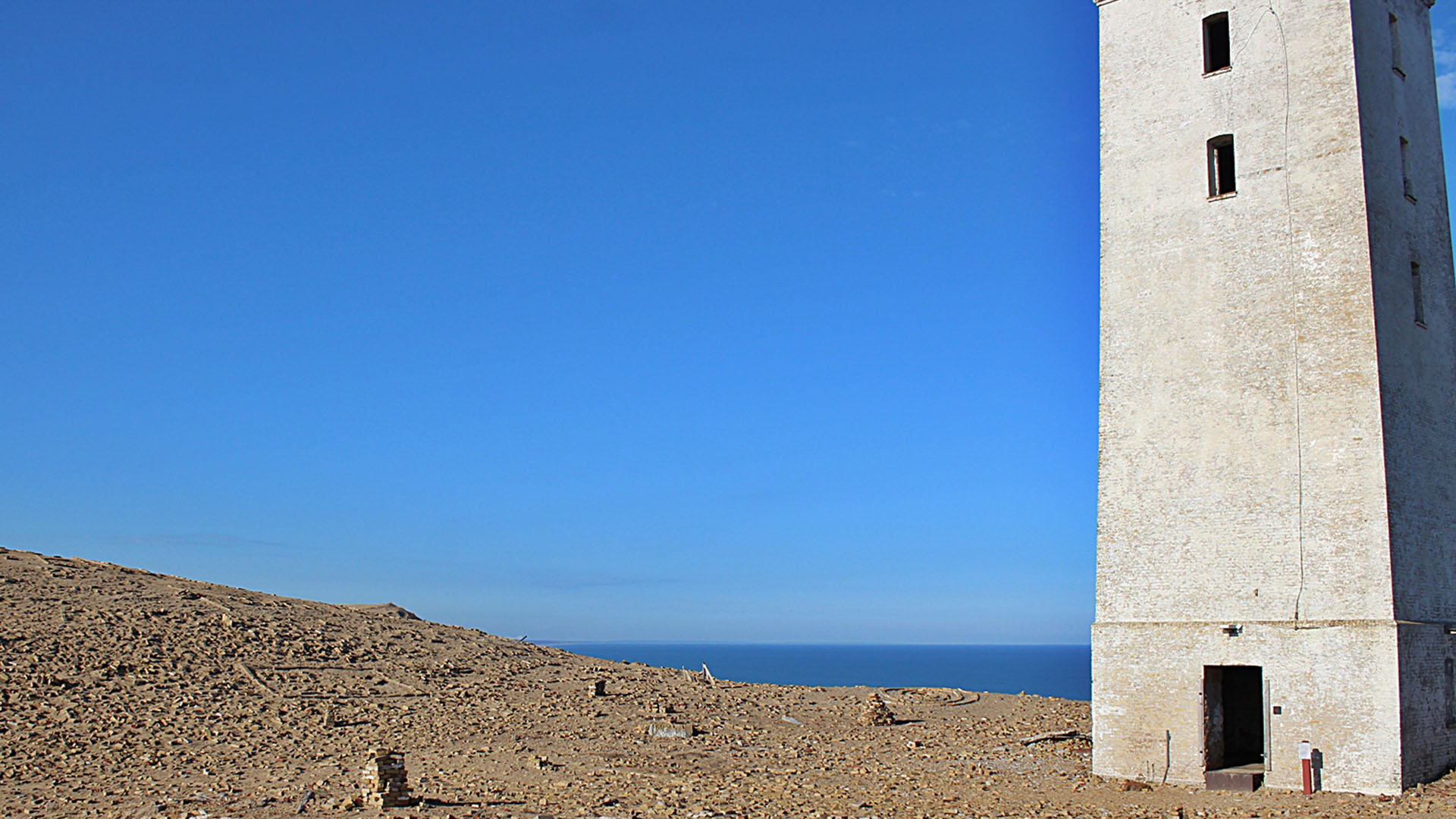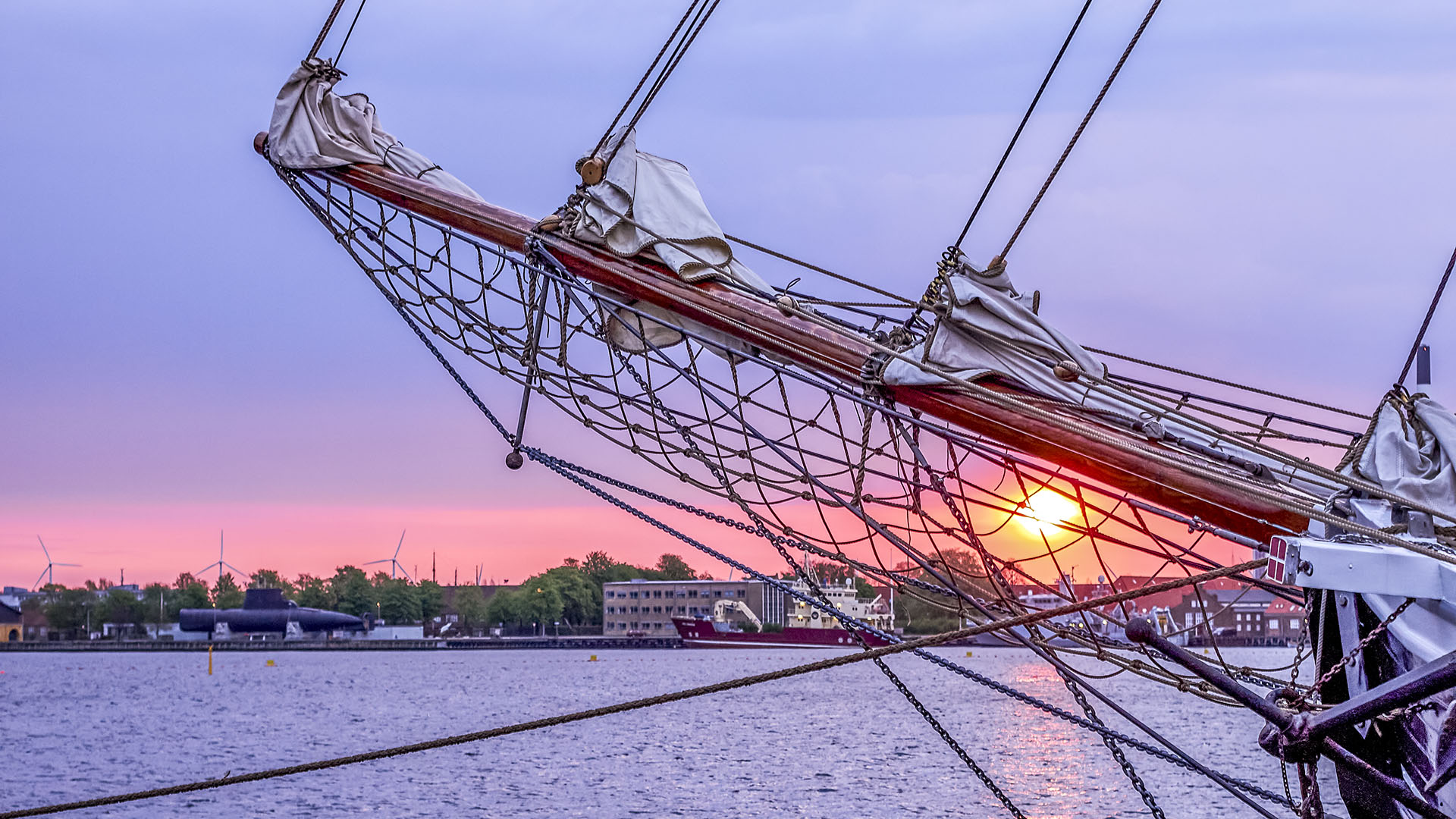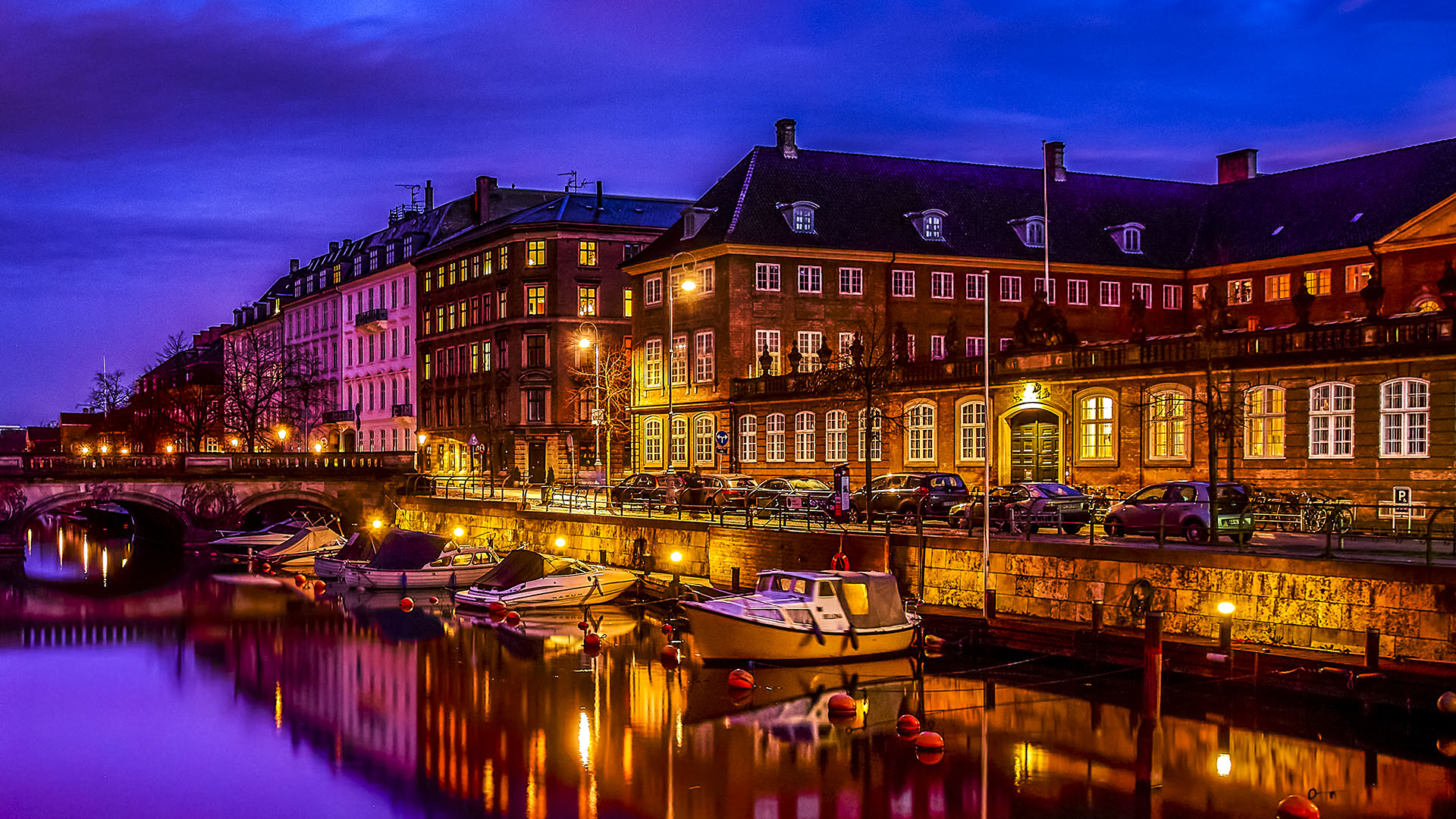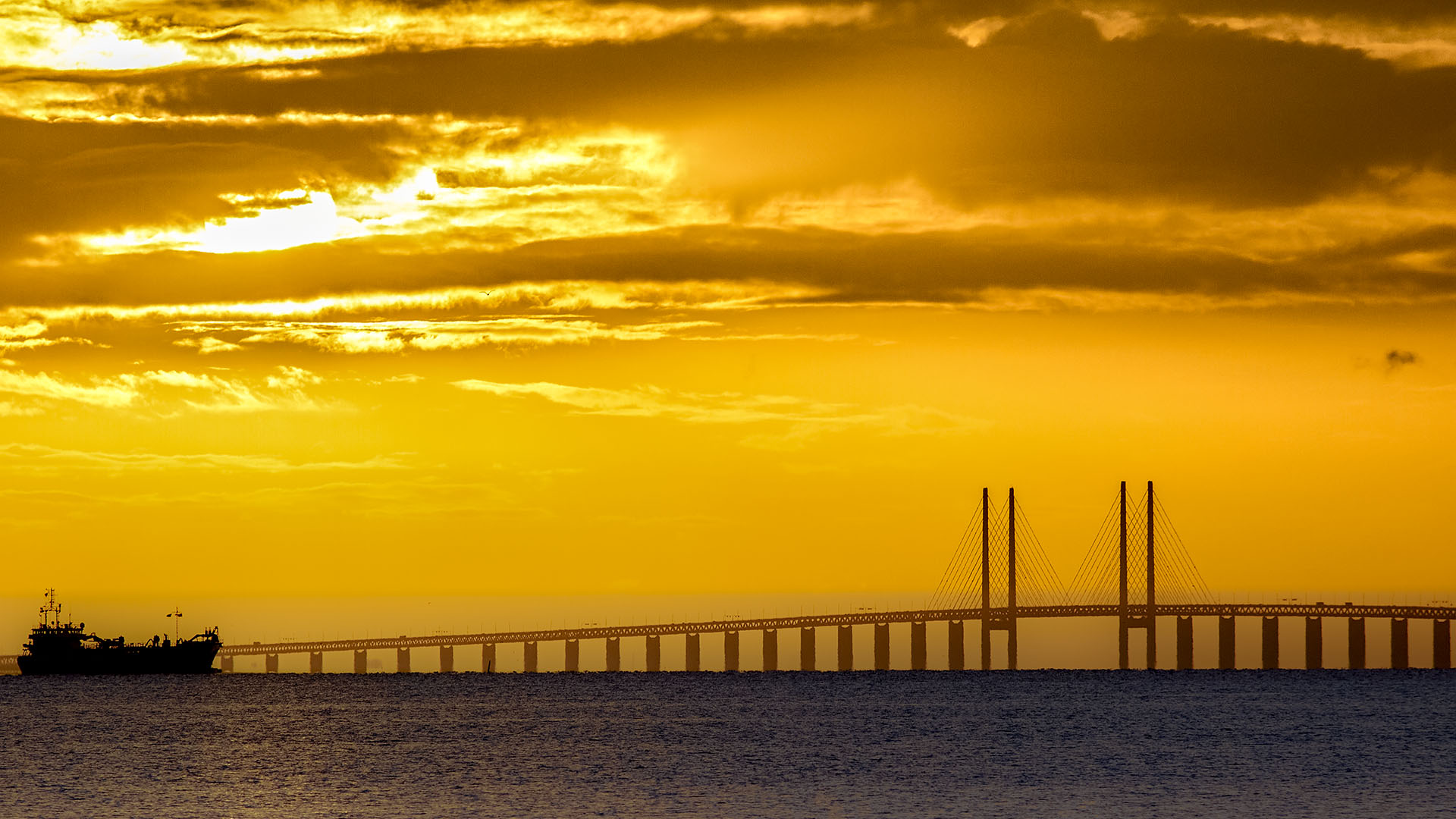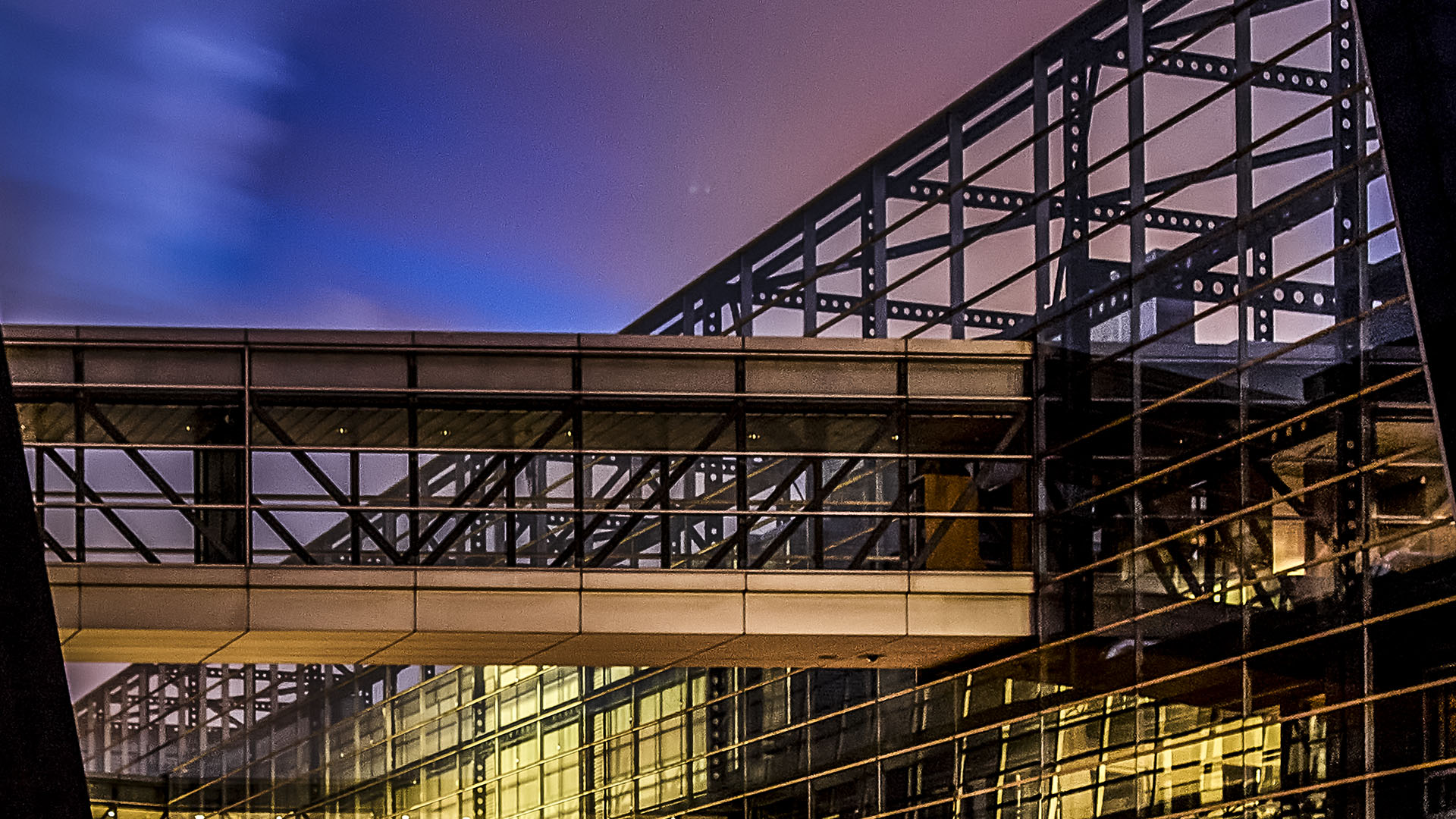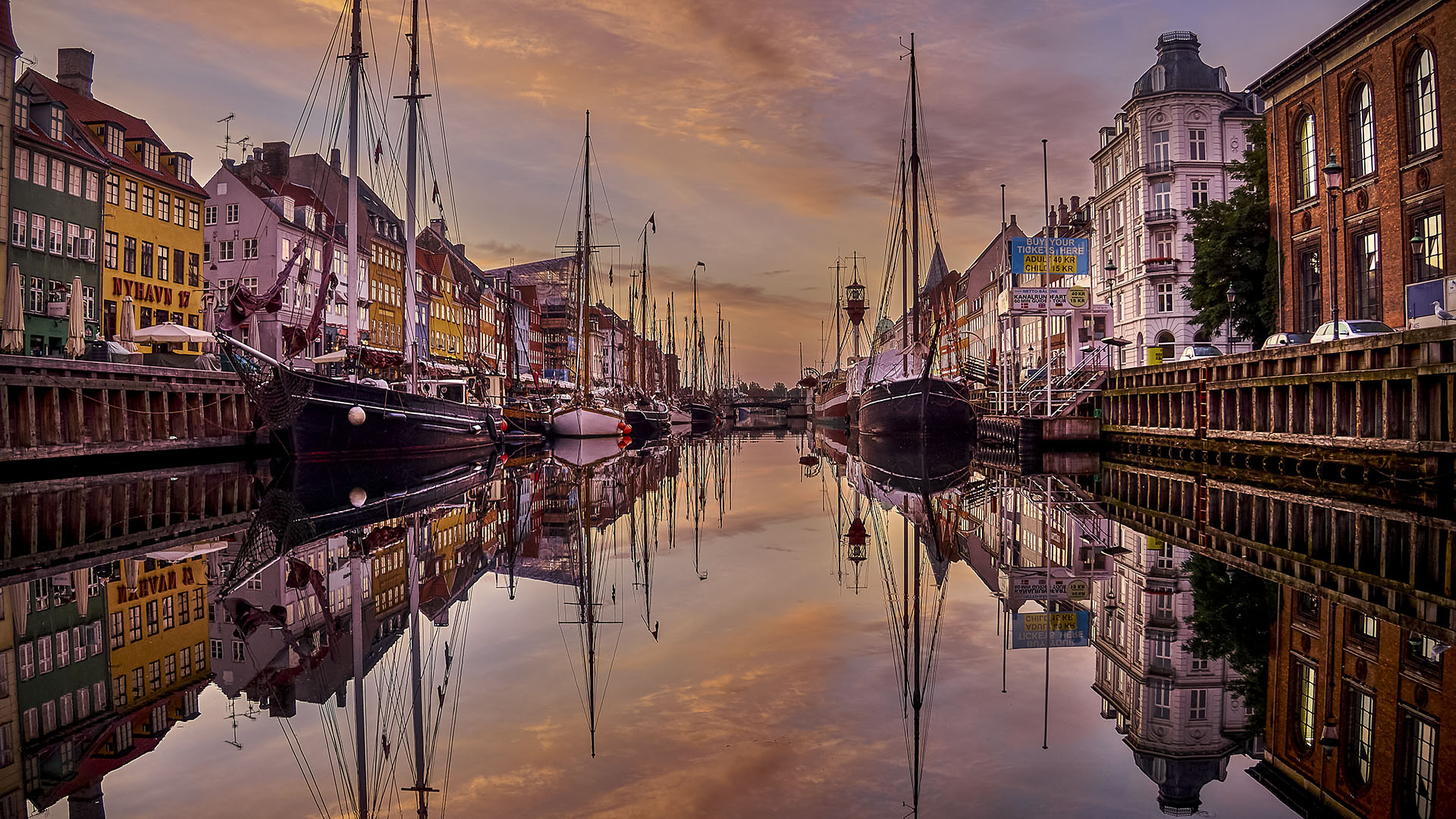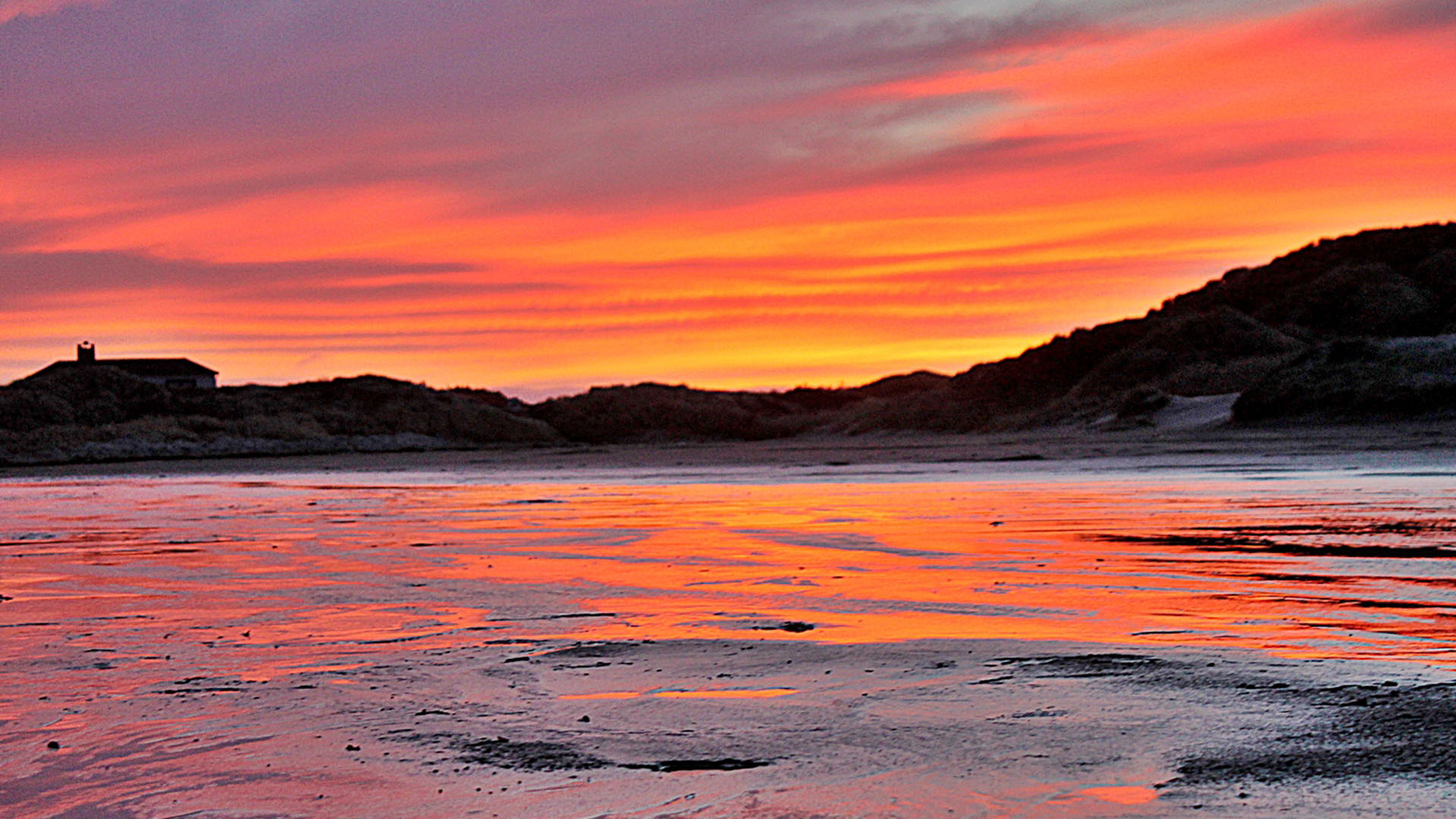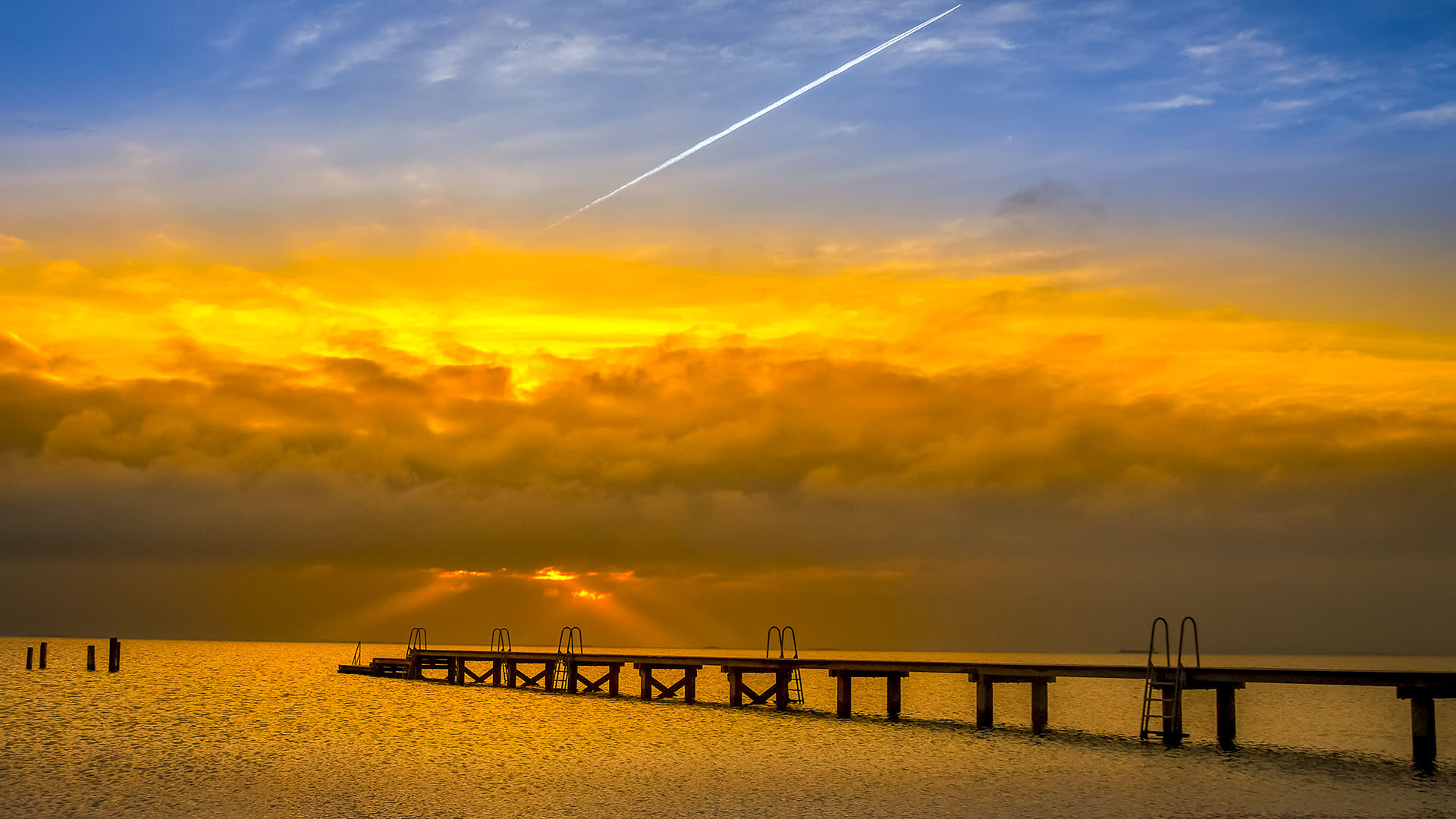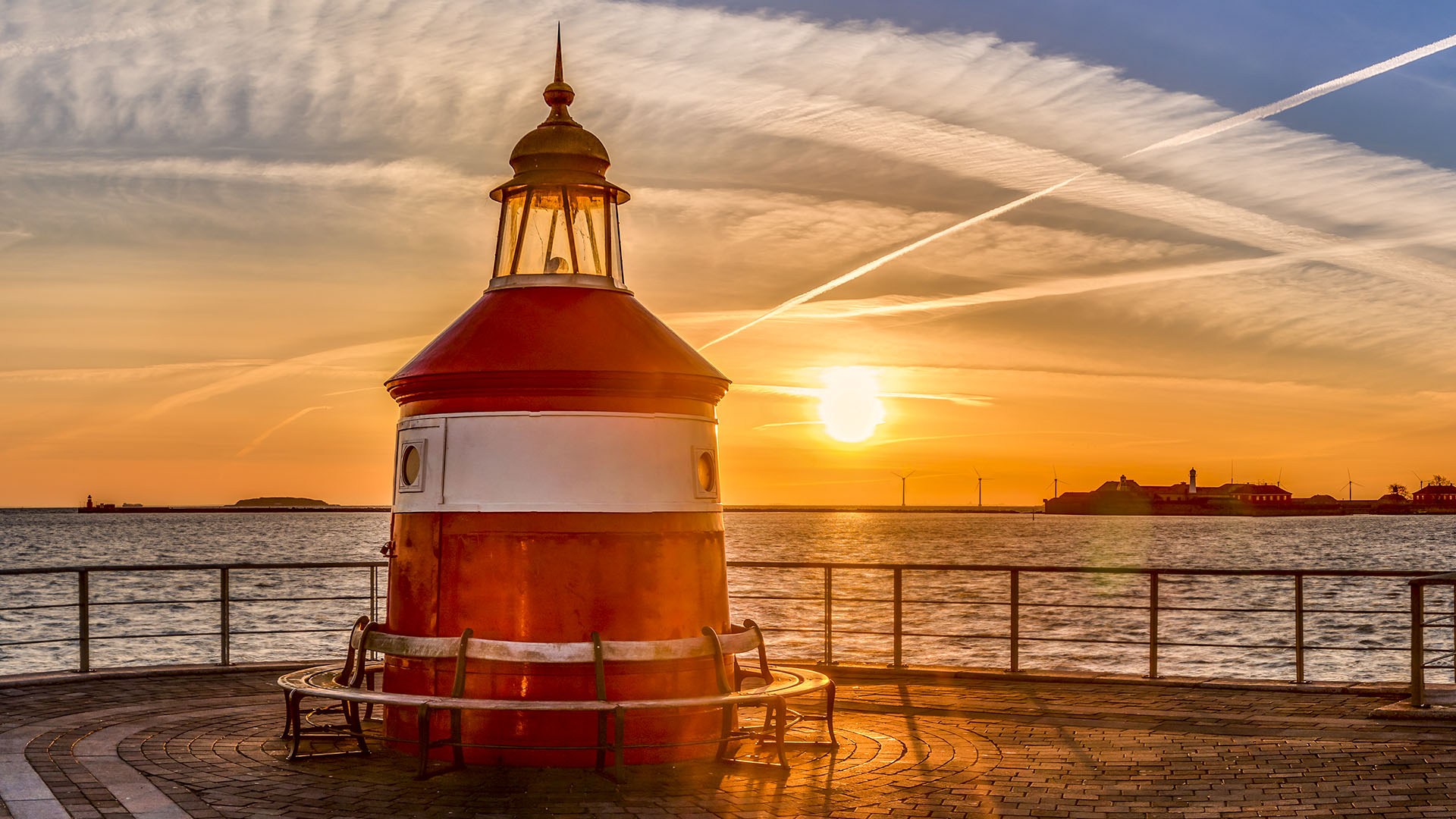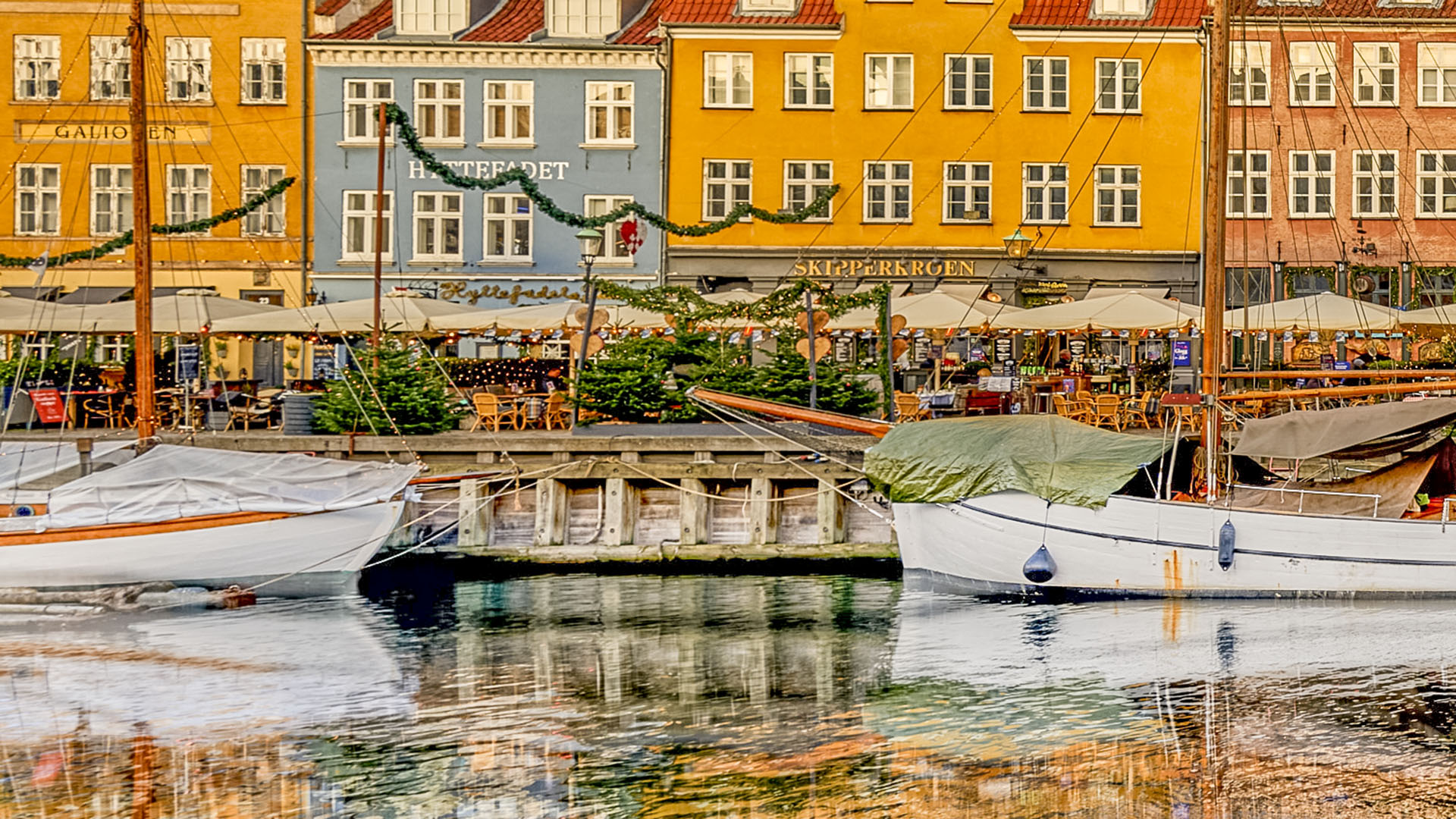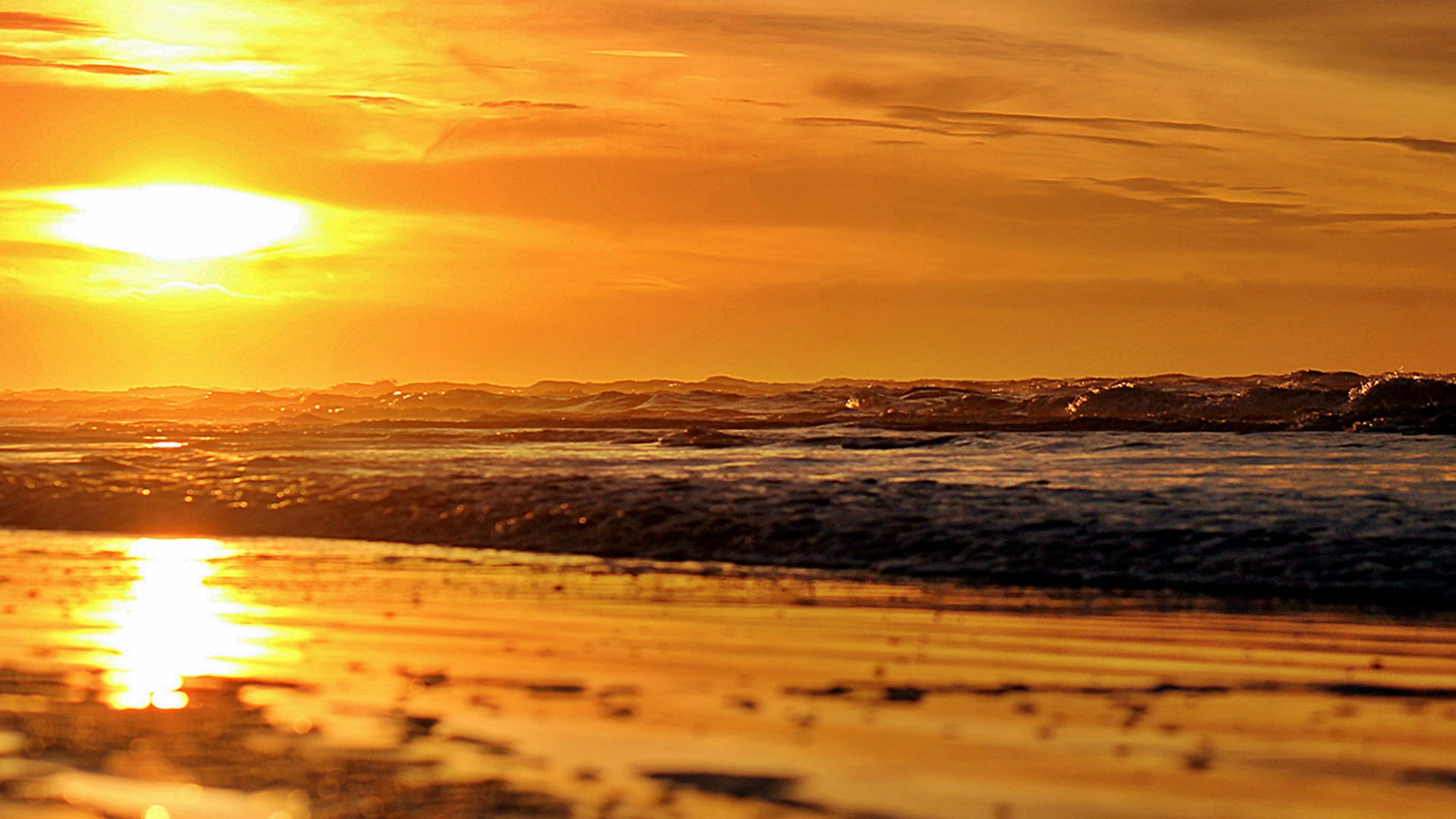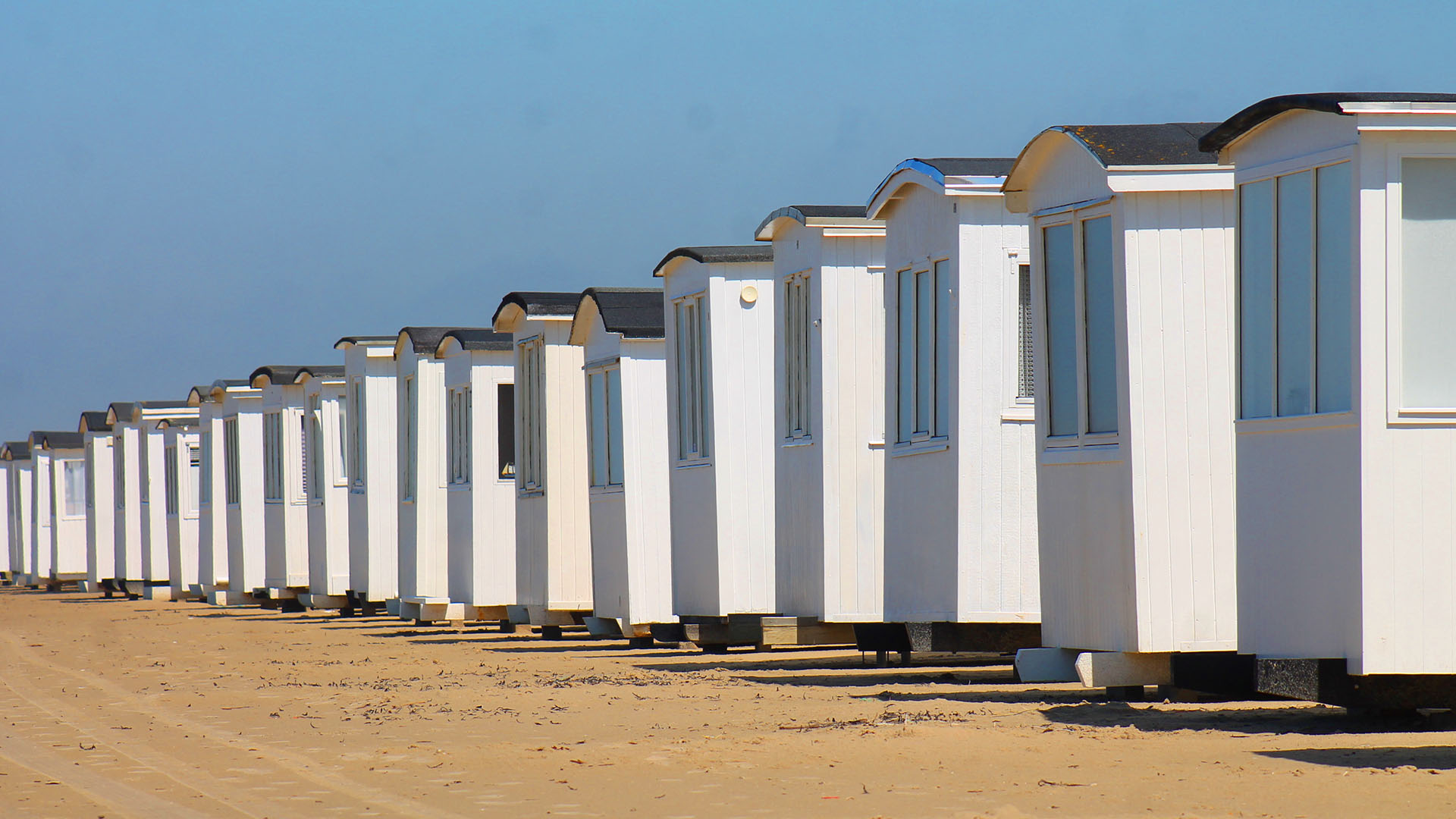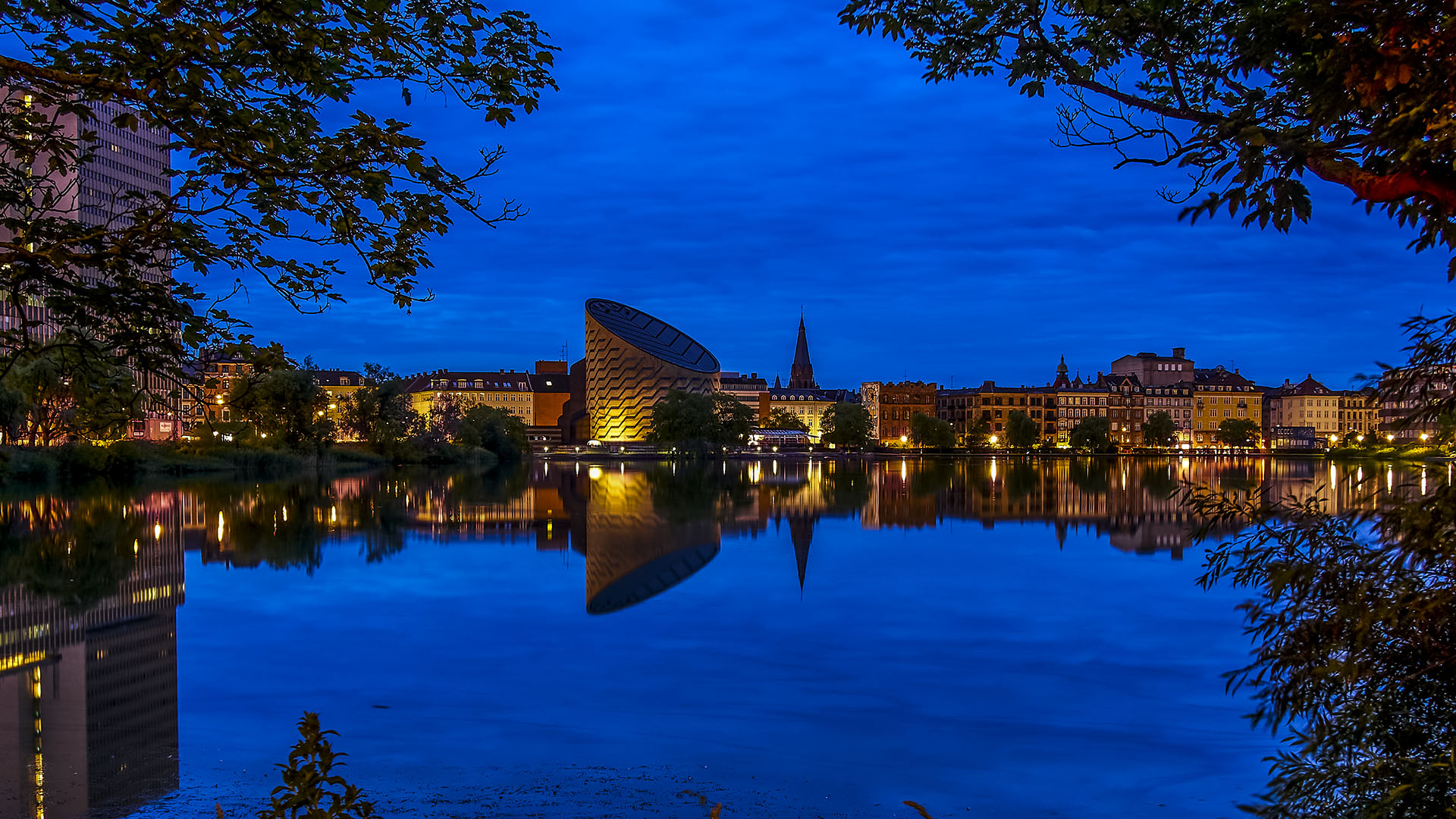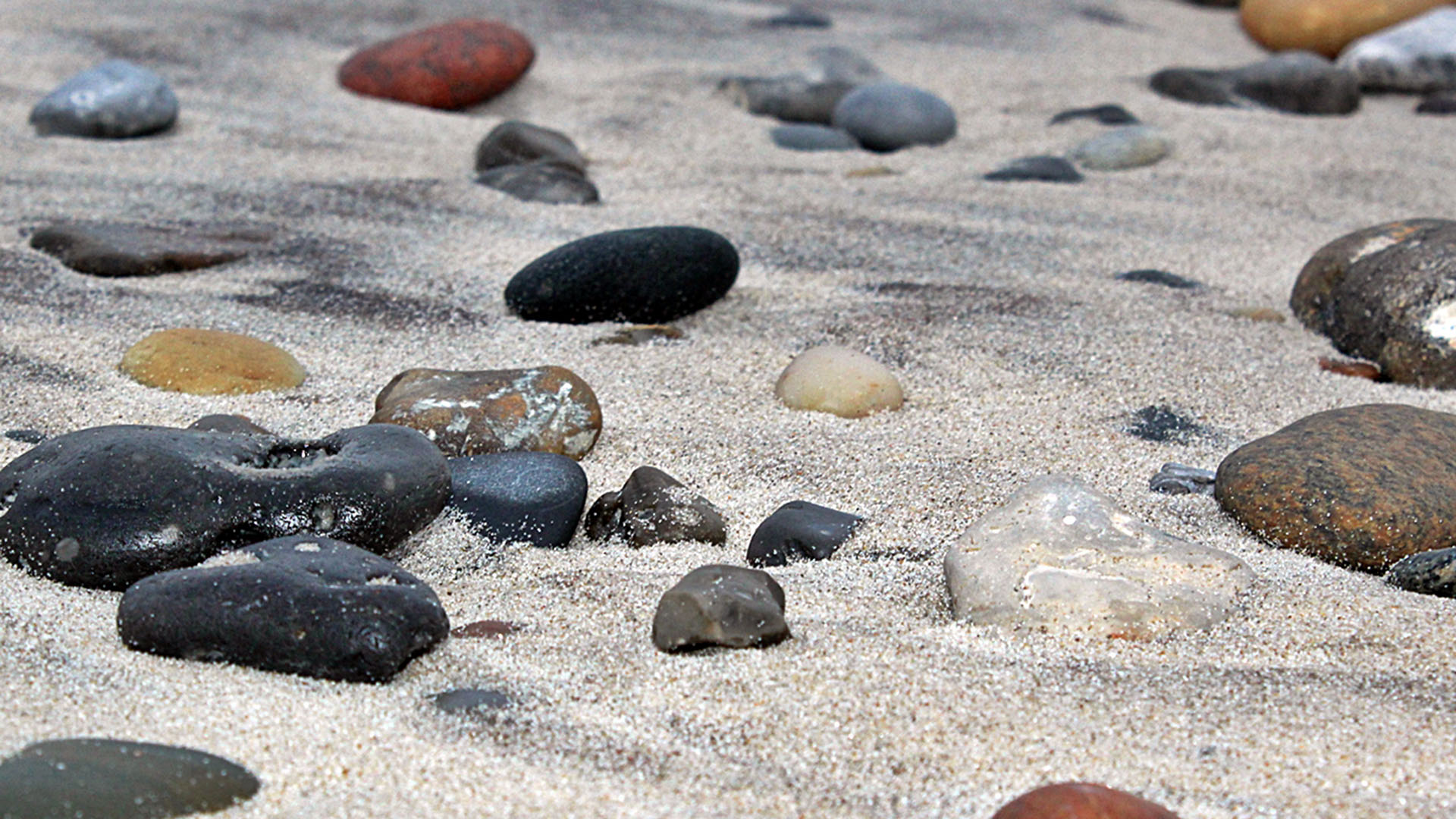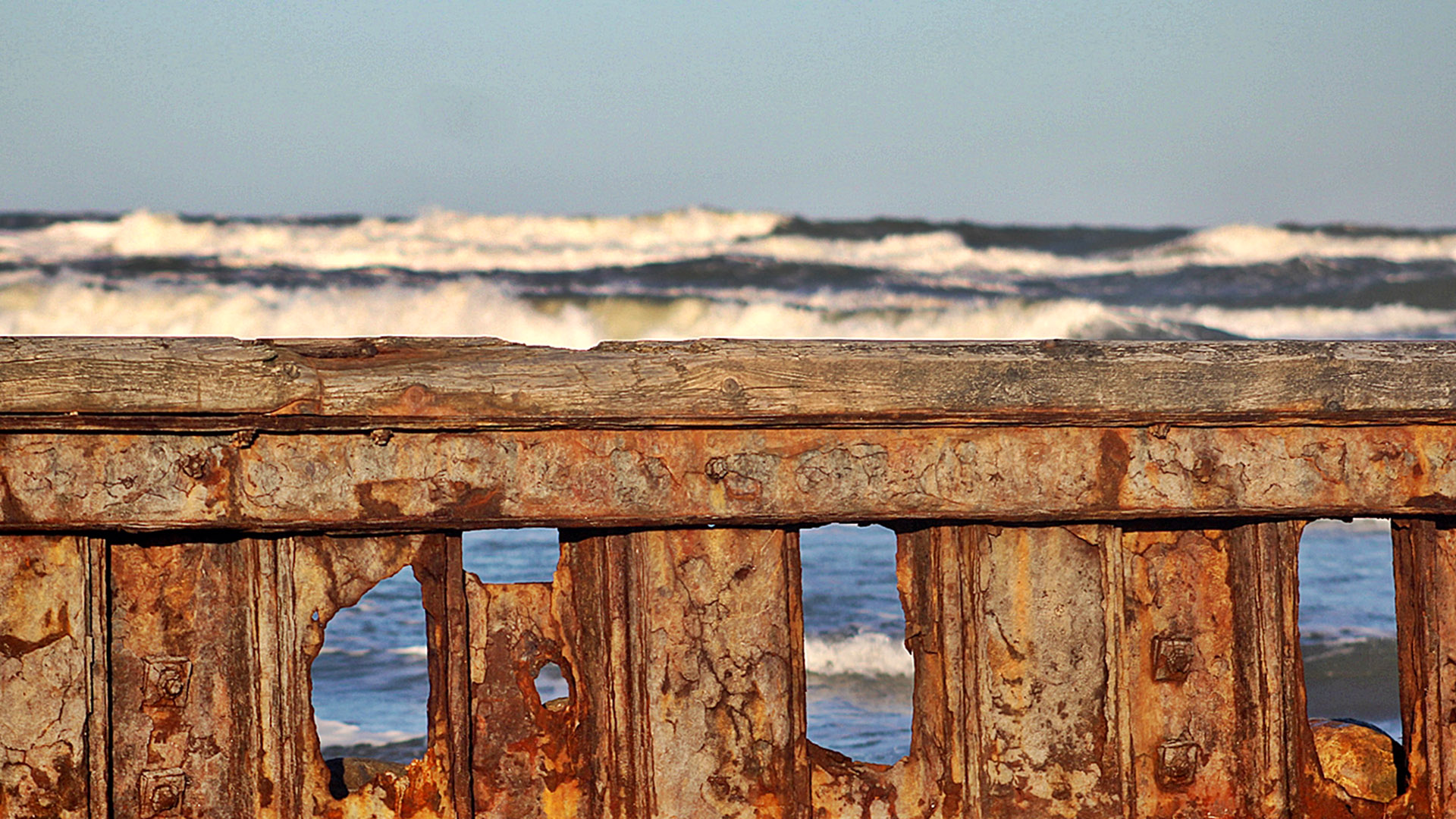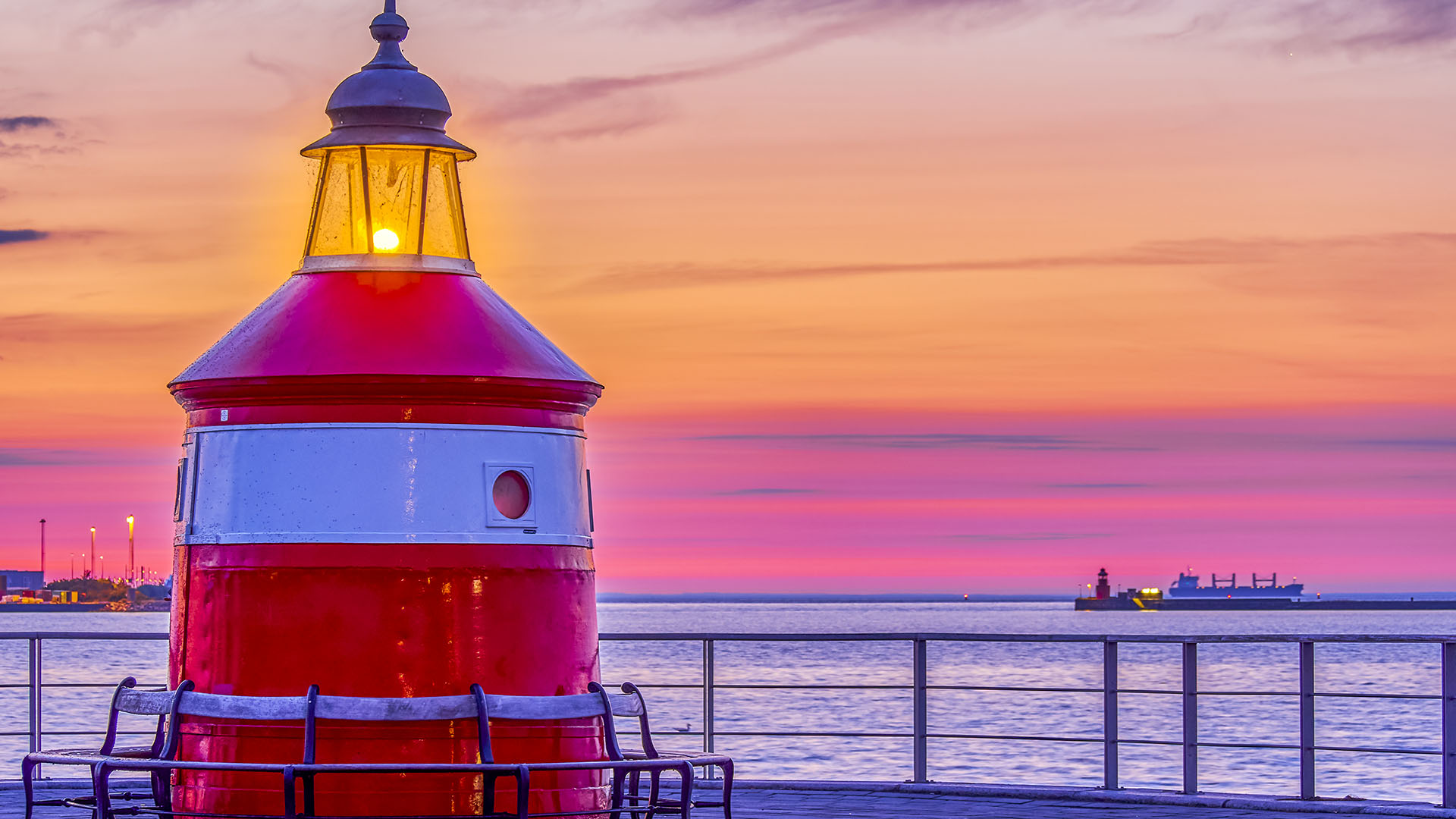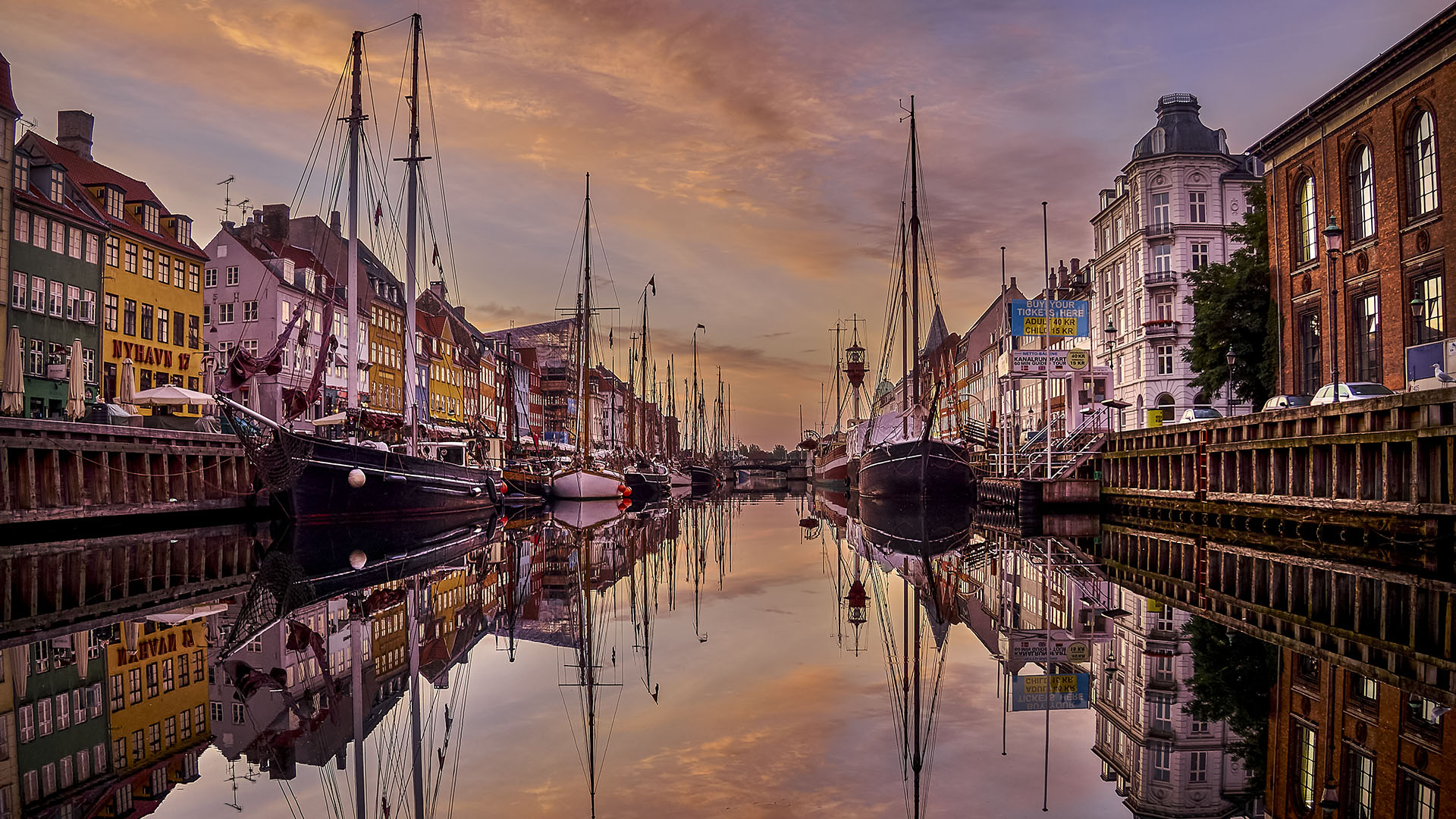Ist Lebensqualitaet in DK besser als in Holland?
Ist Lebensqualitaet in DK besser als in Holland?
Hi,
ich habe ein Jobangebot aus Holland bekommen (2 Monate nach dem Umzug in DK). Ist die Lebensqualitaet in Holland besser als in Dænemark?
Sagen wir, Preise in DK sind sehr hoch, Wohnungen sind mit normalen Gehaeltern nicht bezahlbar, Medizin ist schlecht, Steuern sind riesig (alles im Vergleich zu D.).
Wie sieht es in Holland aus?
Leo
ich habe ein Jobangebot aus Holland bekommen (2 Monate nach dem Umzug in DK). Ist die Lebensqualitaet in Holland besser als in Dænemark?
Sagen wir, Preise in DK sind sehr hoch, Wohnungen sind mit normalen Gehaeltern nicht bezahlbar, Medizin ist schlecht, Steuern sind riesig (alles im Vergleich zu D.).
Wie sieht es in Holland aus?
Leo
-
ScoobieDoo
- Mitglied
- Beiträge: 302
- Registriert: 20.05.2005, 09:00
- Wohnort: Sønderborg, DK
- Kontaktdaten:
Hallo Leo,
da muss ich Dir jetzt mal ein bißchen widersprechen:
- "Preise in DK sehr hoch".... dafür verdient man in der Regel auch mehr als in D.
- "Wohungen nicht bezahlbar"... wir wohnen natürlich nicht in Kopenhagen aber unsere Miete ist mit den deutschen Mieten absolut vergleichbar.
Gruß
PEter
da muss ich Dir jetzt mal ein bißchen widersprechen:
- "Preise in DK sehr hoch".... dafür verdient man in der Regel auch mehr als in D.
- "Wohungen nicht bezahlbar"... wir wohnen natürlich nicht in Kopenhagen aber unsere Miete ist mit den deutschen Mieten absolut vergleichbar.
Gruß
PEter
Erfolg steigt erst dann zu Kopfe, wenn der dazu benötigte Hohlraum vorhanden ist [img]http://www.dobro-wolfgang-reimer.de/gruntgrinani.gif[/img]
-Karl Kraus-
-Karl Kraus-
Hej Leo!
Das mit den höheren Verdiensten haben wir anderswo schon genug diskutiert, aber zur Frage als solcher:
Da wirst Du hier vielleicht nicht so viele kompetente menschen treffen,die sowohl DK als auch NL derart intensiv kennengelernt haben, um ein gutes Urteil abgeben zu können.
ich schlage Dir vor, z.B. zu IDA (Interessengemeinschaft Deutschsprachiger im Ausland) (www.imausland.org) zu gehen und Dich dort schlauzumachen.
Auf den Mailinglisten (es gibt auch eine gute NL-Unterliste, die Skandinavienliste ist glaube ich nicht ganz so aktiv) sind Deutschsprachige, die sowohl im einen als auch anderen Land wohnen.
Laß Dir von dort gesichertere NL-Infos geben und vergleiche dann selbst.
Viel Spaß - Ursel, DK
Das mit den höheren Verdiensten haben wir anderswo schon genug diskutiert, aber zur Frage als solcher:
Da wirst Du hier vielleicht nicht so viele kompetente menschen treffen,die sowohl DK als auch NL derart intensiv kennengelernt haben, um ein gutes Urteil abgeben zu können.
ich schlage Dir vor, z.B. zu IDA (Interessengemeinschaft Deutschsprachiger im Ausland) (www.imausland.org) zu gehen und Dich dort schlauzumachen.
Auf den Mailinglisten (es gibt auch eine gute NL-Unterliste, die Skandinavienliste ist glaube ich nicht ganz so aktiv) sind Deutschsprachige, die sowohl im einen als auch anderen Land wohnen.
Laß Dir von dort gesichertere NL-Infos geben und vergleiche dann selbst.
Viel Spaß - Ursel, DK
hallo leo,
kommt in meinen augen etwas drauf an WOHIN in NL - habe lange zeit in der limburger region gearbeitet - habe heute noch gute kontakte nach NL - und bin öfters dort.
das dort ein anderer standard herrscht - klar. würde aber sagen das das wirklich auf den einzelnen ankommt und auf die jeweilige situation.
schau - ich bin in D geboren - dort aufgewachsen - war lange zeit in island und habe danach in NL gearbeitet. jetzt seit knapp 2 jahren in DK - vielleicht bin ich anpassungsfähig (oder anspruchslos?) - ich bin immer und überall gut klar gekommen. sicher gibt es hier und dort das ein oder andere zu bemängeln (in DK die "autopolitik" - in NL dagegen empfand ich die medizinische versorgung (noch) schlimmer als z.b. in DK - dafür liegen die steuern niedriger).
verstehst du was ich meine?
good luck
kommt in meinen augen etwas drauf an WOHIN in NL - habe lange zeit in der limburger region gearbeitet - habe heute noch gute kontakte nach NL - und bin öfters dort.
das dort ein anderer standard herrscht - klar. würde aber sagen das das wirklich auf den einzelnen ankommt und auf die jeweilige situation.
schau - ich bin in D geboren - dort aufgewachsen - war lange zeit in island und habe danach in NL gearbeitet. jetzt seit knapp 2 jahren in DK - vielleicht bin ich anpassungsfähig (oder anspruchslos?) - ich bin immer und überall gut klar gekommen. sicher gibt es hier und dort das ein oder andere zu bemängeln (in DK die "autopolitik" - in NL dagegen empfand ich die medizinische versorgung (noch) schlimmer als z.b. in DK - dafür liegen die steuern niedriger).
verstehst du was ich meine?
good luck
Vielen Dank. Ich bin erst vor kurzem nach DK gezogen. Und erst hier habe ich bemerkt, wie bequem das Lebel in D war. Ehrlich gesagt, wusste ich nicht was ist hier in DK mit Steuern/Wohnungskosten/Medizinversorgung geht.
Daher habe ich auf Jobangebot in Holland mit Interesse reagiert: vielleicht, ist Holland so bequem zum Leben wie D. (niedrige Preise, niedrige Steuern, gute Medizin), aber so freundlich wie DK.
Daher habe ich auf Jobangebot in Holland mit Interesse reagiert: vielleicht, ist Holland so bequem zum Leben wie D. (niedrige Preise, niedrige Steuern, gute Medizin), aber so freundlich wie DK.
-
runesfar
Mann, jetzt kriege Ich haue - aber sage es trotzdem:
Ich würde nicht nach Holland gehen. Ist doch ziemlich klar das die sitiation dort sich sehr schnell sehr viel verschlechtern kann. Sonst wäre die auswanderung zur USA, Australien und Canada in die letzte Jahr nicht verdoppelt.
Wenn du mit Holländer sprichst, wird das Wort Bürgerkrieg öfter als reeele bedrohung jetzt erwänhnt und es benötigt nur eine gelungene attentat mehr ehe "the **** hits the fan".
Falls Du english liest war diese artikel seit ein jahr in Daily Telegraph zu lesen.
Exodus as Dutch middle class seek new life
(Filed: 11/12/2004)
For years Holland was celebrated as a symbol of racial tolerance. But two high-profile murders have changed all that, reports Ambrose Evans-Pritchard
Escaping the stress of clogged roads, street violence and loss of faith in Holland's once celebrated way of life, the Dutch middle classes are leaving the country in droves for the first time in living memory.
The new wave of educated migrants are quietly voting with their feet against a multicultural experiment long touted as a model for the world, but increasingly a warning of how good intentions can go wrong.
Australia, Canada and New Zealand are the pin-up countries for those craving the great outdoors and old-fashioned civility.
The illusion that all was well in the Netherlands died in May 2002 when Pim Fortuyn, the shaven-headed, gay populist, was shot by a Left-wing activist in the country's first political assassination since 1584.
Fulminating home truths than nobody else dared utter, Fortuyn swept on to the political stage protesting that Europe's most densely-populated country was full to bursting point, and that Muslim immigration, leavened with Salafist extremism, had reached a level where it was starting to destabilise Dutch society itself. His movement won more seats than the ruling Labour party in the 2002 elections.
Theo van Gogh, his friend and disciple, was next. The mischievous film-maker had his throat cut by an Islamic fanatic last month as he bicycled to work through the heart of Amsterdam, punished for a film about repression of women in the Muslim world.
A shrill provocateur, Mr van Gogh was not to everybody's taste. He once filmed kittens being mangled to death in a washing machine, which he thought was hilarious.
But his ritual execution, apparently by an Islamist hit squad, has shocked the country. Two leading MPs known to be targets are in hiding. The political class has been chilled to the bone, while white gangs have firebombed or attacked around 20 mosques and Islamic centres. "This was our 9/11. It was the moment the Netherlands lost its naivety. We always thought that we were the country of multicultural tolerance that could do no wrong," said Prof Han Entzinger of Rotterdam University.
Frans Buysse, the head of Buysse Immigration Consultancy, said he received more than 13,000 hits on his emigration website in November, four times the usual level. His office in Culemburg is flooded with fresh applications.
"Van Gogh's death was a confirmation for them of what they already sensed was happening," he said. "They're accountants, teachers, nurses, businessmen and bricklayers, from all walks of life. They see things going on every day in this country that are quite unbelievable. They see no clear message from the government, and they are afraid it's becoming irreversible, that's why they are leaving."
The tales range from exhaustion with Holland's epidemic of road rage incidents, to fears that it is no longer safe to go shopping.
"Van Gogh was a very public victim, but there are unknown victims on streets all the time. It's the living climate that is deteriorating. There are too many people on this one small spot of land,'' said Mr Buysse.
More people left the Netherlands in 2003 than arrived, ending a half-century cycle of surging immigration that has turned a tight-knit Nordic tribe into a multi-ethnic mosaic with three million people of foreign roots out of 16 million. Almost one million are Muslims, mostly Turks and Moroccan-Berbers. In Rotterdam, 47 per cent of the city's population is of foreign origin. While asylum claims have plunged, the exodus is accelerating, reaching 13,313 net outflow in the first half of 2004. Many retiring workers are moving to the south of France, but a growing bloc leaving the country appears to be educated, working families.
Peter and Ellen Bles have applied for visas to Australia after falling in love with the country during a trip there three years ago.
"People are so relaxed and open to each other there. As soon as we got home I just wanted to pack up our bags and leave," said Peter, 41, a computer operations manager for ING bank.
He was weary of the daily battles, short tempers, and coarsening manners at home. "When you want to park your car here it's almost warfare. We go to the supermarket at 8am just to avoid having to fight," he said.
A "for sale" sign stands outside their clean, airy house in Sprang Capelle, a three-hour round-trip from Amsterdam.
House prices are one third of costs in Perth, where they plan to go, but they have no jobs lined up. "We've no idea at all what we're going to do," he said.
Ellen, 43, a lawyer and banker who votes for the free-market Liberals, said the code of behaviour regulating daily life in the Netherlands was breaking down.
"People no longer know what to expect from each other. There are so many rules, but nobody sticks to them. They just do as they want. They just execute people on the streets, it's shocking when you see this for the first time," she said. "We've become so tolerant that everybody thinks they can fight their own wars here. Van Gogh is killed, and then people throw bombs at mosques and churches. It's escalating because the police and the state aren't doing anything about it.
"There's a feeling of injustice that if you do things right, if you work hard and pay your taxes, you're punished, and those who don't are rewarded. People can come and live here illegally and get payments. How is that possible?
"We didn't think about how we should integrate people, to make sure that we actually talk to each other and know each other, instead of living in ghettoes with different rules.
"It's not why we are leaving: the reason is that Australia feels different, it feels like a place where we would like to grow old," she said.
Rob Platje, 34, a sales agent in Arnhem, is leaving in February to live in the Canadian Rockies with his partner and infant son.
"In Canada people have the space to get along with each other without stress. When I'm here in traffic, I'm terrible. I'm no better than anybody else. I lose my temper in the car, and I just hate myself for it," he said.
"What I see here in the Netherlands is that people are becoming more frightened. A lot of things have been going on over the last two years. They don't know if they can trust their neighbours.
"We hid the problem for a long time because we didn't want to face up to the truth of what was happening," he said.
Unlike most earlier waves of migration to the new world, this one is not driven by penury. The Netherlands has a per capita income higher than Germany or Britain, and 4.7 per cent unemployment.
"None of my clients is leaving for economic reasons. You can't get a visa anyway if you haven't got a work record," said Frans Buysse.
Europe's leader for much of the last century in social experiments, Holland may now be pointing to the next cultural revolution: bourgeois exodus.
Ich würde nicht nach Holland gehen. Ist doch ziemlich klar das die sitiation dort sich sehr schnell sehr viel verschlechtern kann. Sonst wäre die auswanderung zur USA, Australien und Canada in die letzte Jahr nicht verdoppelt.
Wenn du mit Holländer sprichst, wird das Wort Bürgerkrieg öfter als reeele bedrohung jetzt erwänhnt und es benötigt nur eine gelungene attentat mehr ehe "the **** hits the fan".
Falls Du english liest war diese artikel seit ein jahr in Daily Telegraph zu lesen.
Exodus as Dutch middle class seek new life
(Filed: 11/12/2004)
For years Holland was celebrated as a symbol of racial tolerance. But two high-profile murders have changed all that, reports Ambrose Evans-Pritchard
Escaping the stress of clogged roads, street violence and loss of faith in Holland's once celebrated way of life, the Dutch middle classes are leaving the country in droves for the first time in living memory.
The new wave of educated migrants are quietly voting with their feet against a multicultural experiment long touted as a model for the world, but increasingly a warning of how good intentions can go wrong.
Australia, Canada and New Zealand are the pin-up countries for those craving the great outdoors and old-fashioned civility.
The illusion that all was well in the Netherlands died in May 2002 when Pim Fortuyn, the shaven-headed, gay populist, was shot by a Left-wing activist in the country's first political assassination since 1584.
Fulminating home truths than nobody else dared utter, Fortuyn swept on to the political stage protesting that Europe's most densely-populated country was full to bursting point, and that Muslim immigration, leavened with Salafist extremism, had reached a level where it was starting to destabilise Dutch society itself. His movement won more seats than the ruling Labour party in the 2002 elections.
Theo van Gogh, his friend and disciple, was next. The mischievous film-maker had his throat cut by an Islamic fanatic last month as he bicycled to work through the heart of Amsterdam, punished for a film about repression of women in the Muslim world.
A shrill provocateur, Mr van Gogh was not to everybody's taste. He once filmed kittens being mangled to death in a washing machine, which he thought was hilarious.
But his ritual execution, apparently by an Islamist hit squad, has shocked the country. Two leading MPs known to be targets are in hiding. The political class has been chilled to the bone, while white gangs have firebombed or attacked around 20 mosques and Islamic centres. "This was our 9/11. It was the moment the Netherlands lost its naivety. We always thought that we were the country of multicultural tolerance that could do no wrong," said Prof Han Entzinger of Rotterdam University.
Frans Buysse, the head of Buysse Immigration Consultancy, said he received more than 13,000 hits on his emigration website in November, four times the usual level. His office in Culemburg is flooded with fresh applications.
"Van Gogh's death was a confirmation for them of what they already sensed was happening," he said. "They're accountants, teachers, nurses, businessmen and bricklayers, from all walks of life. They see things going on every day in this country that are quite unbelievable. They see no clear message from the government, and they are afraid it's becoming irreversible, that's why they are leaving."
The tales range from exhaustion with Holland's epidemic of road rage incidents, to fears that it is no longer safe to go shopping.
"Van Gogh was a very public victim, but there are unknown victims on streets all the time. It's the living climate that is deteriorating. There are too many people on this one small spot of land,'' said Mr Buysse.
More people left the Netherlands in 2003 than arrived, ending a half-century cycle of surging immigration that has turned a tight-knit Nordic tribe into a multi-ethnic mosaic with three million people of foreign roots out of 16 million. Almost one million are Muslims, mostly Turks and Moroccan-Berbers. In Rotterdam, 47 per cent of the city's population is of foreign origin. While asylum claims have plunged, the exodus is accelerating, reaching 13,313 net outflow in the first half of 2004. Many retiring workers are moving to the south of France, but a growing bloc leaving the country appears to be educated, working families.
Peter and Ellen Bles have applied for visas to Australia after falling in love with the country during a trip there three years ago.
"People are so relaxed and open to each other there. As soon as we got home I just wanted to pack up our bags and leave," said Peter, 41, a computer operations manager for ING bank.
He was weary of the daily battles, short tempers, and coarsening manners at home. "When you want to park your car here it's almost warfare. We go to the supermarket at 8am just to avoid having to fight," he said.
A "for sale" sign stands outside their clean, airy house in Sprang Capelle, a three-hour round-trip from Amsterdam.
House prices are one third of costs in Perth, where they plan to go, but they have no jobs lined up. "We've no idea at all what we're going to do," he said.
Ellen, 43, a lawyer and banker who votes for the free-market Liberals, said the code of behaviour regulating daily life in the Netherlands was breaking down.
"People no longer know what to expect from each other. There are so many rules, but nobody sticks to them. They just do as they want. They just execute people on the streets, it's shocking when you see this for the first time," she said. "We've become so tolerant that everybody thinks they can fight their own wars here. Van Gogh is killed, and then people throw bombs at mosques and churches. It's escalating because the police and the state aren't doing anything about it.
"There's a feeling of injustice that if you do things right, if you work hard and pay your taxes, you're punished, and those who don't are rewarded. People can come and live here illegally and get payments. How is that possible?
"We didn't think about how we should integrate people, to make sure that we actually talk to each other and know each other, instead of living in ghettoes with different rules.
"It's not why we are leaving: the reason is that Australia feels different, it feels like a place where we would like to grow old," she said.
Rob Platje, 34, a sales agent in Arnhem, is leaving in February to live in the Canadian Rockies with his partner and infant son.
"In Canada people have the space to get along with each other without stress. When I'm here in traffic, I'm terrible. I'm no better than anybody else. I lose my temper in the car, and I just hate myself for it," he said.
"What I see here in the Netherlands is that people are becoming more frightened. A lot of things have been going on over the last two years. They don't know if they can trust their neighbours.
"We hid the problem for a long time because we didn't want to face up to the truth of what was happening," he said.
Unlike most earlier waves of migration to the new world, this one is not driven by penury. The Netherlands has a per capita income higher than Germany or Britain, and 4.7 per cent unemployment.
"None of my clients is leaving for economic reasons. You can't get a visa anyway if you haven't got a work record," said Frans Buysse.
Europe's leader for much of the last century in social experiments, Holland may now be pointing to the next cultural revolution: bourgeois exodus.
-
eclipse
Generell sollte man sich ueberlegen worauf man wertlegt, Holland ist ein liberales Land mit entsprechend vielen Nationalitaeten mit allen Vor- und Nachteilen. Dk ist eher ein Land mit Menschen wie runesfar. Das ist wohl der Hauptunterschied, Finanziell ist es wohl eher das gleiche. Einkommen geringer, aber alles guenstiger.
-
Tordenskjold
-
reimund1012
Hej,
Nanu?
Jemand der in Frankreich lebt bezeichnet die Niederlande als extrem teuer?
Das würde ich doch eher umgekehrt sehen.
Wir waren über Ostern wie üblich in den Niederlanden, und ich kann nicht sagen das es dort unbedingt teurer als in Deutschland ist.
Teuer sind interessanterweise ausgerechnet holländische Produkte wie Gemüse, Fleisch und Käse, billiger z.B. meine heissgeliebten Lakritzdrops und einige Genussmittel wie Kaffepads und Tee.
Wenn etwas in Holland wirklich extrem teuer geworden ist, dann ist es das Wohnen.
Die Immobilienpreise sind in den letzten Jahren förmlich explodiert, und auch die Mieten haben dementsprechend ziemlich angezogen.
Daher kaufen die Niederländer derzeit in Deutschland so ziemlich alle Häuser auf, die nahe der Grenze auf dem Markt sind.
Was die Lebensqualität angeht, so kommt es doch ziemlich stark darauf an, WO man dort lebt.
In Limburg oder Brabant würde ich auch nicht unbedingt gerne wohnen, und im Ballungsgebiet Amsterdam-Rotterdam gibt es in der Tat einige soziale und kulturelle Brennpunkte.
In Südholland oder Friesland dagegen könnte ich mich dagegen auch recht wohlfühlen.
Erstere haben mental schon einen leichten belgischen Einschlag und die Friesen sind eben in erster Linie Friesen und dann erst Niederländer )
)
(Aber in Jylland sind die Menschen ja auch ganz anders drauf als in København, oder ?. Und in Sønderjylland habe ich doch tatsächlich einen Dänen gesehen der es furchtbar eilig hatte)
Was das Arbeiten in den Niederlanden angeht bin ich der Meinung, dass dies von der Bürokratie her wesentlich einfacher ist als in DK.
Ich habe einen guten Bekannten, der im Raum Straelen wohnt, und schon seit ca. 10 Jahren jenseits der Grenze seine Broodjes verdient.
Vom Arbeitsklima her gesehen soll es dort wesentlich entspannter zugehen als in Deutschland.
Sind dort halt weniger leicht unter Druck zu setzen, im Land des Fachkräftemangels.
Wenn der Job also interessant ist, warum also nicht im Land der Tulpen arbeiten ?
Hilsen
Reimund
Nanu?
Jemand der in Frankreich lebt bezeichnet die Niederlande als extrem teuer?
Das würde ich doch eher umgekehrt sehen.
Wir waren über Ostern wie üblich in den Niederlanden, und ich kann nicht sagen das es dort unbedingt teurer als in Deutschland ist.
Teuer sind interessanterweise ausgerechnet holländische Produkte wie Gemüse, Fleisch und Käse, billiger z.B. meine heissgeliebten Lakritzdrops und einige Genussmittel wie Kaffepads und Tee.
Wenn etwas in Holland wirklich extrem teuer geworden ist, dann ist es das Wohnen.
Die Immobilienpreise sind in den letzten Jahren förmlich explodiert, und auch die Mieten haben dementsprechend ziemlich angezogen.
Daher kaufen die Niederländer derzeit in Deutschland so ziemlich alle Häuser auf, die nahe der Grenze auf dem Markt sind.
Was die Lebensqualität angeht, so kommt es doch ziemlich stark darauf an, WO man dort lebt.
In Limburg oder Brabant würde ich auch nicht unbedingt gerne wohnen, und im Ballungsgebiet Amsterdam-Rotterdam gibt es in der Tat einige soziale und kulturelle Brennpunkte.
In Südholland oder Friesland dagegen könnte ich mich dagegen auch recht wohlfühlen.
Erstere haben mental schon einen leichten belgischen Einschlag und die Friesen sind eben in erster Linie Friesen und dann erst Niederländer
(Aber in Jylland sind die Menschen ja auch ganz anders drauf als in København, oder ?. Und in Sønderjylland habe ich doch tatsächlich einen Dänen gesehen der es furchtbar eilig hatte)
Was das Arbeiten in den Niederlanden angeht bin ich der Meinung, dass dies von der Bürokratie her wesentlich einfacher ist als in DK.
Ich habe einen guten Bekannten, der im Raum Straelen wohnt, und schon seit ca. 10 Jahren jenseits der Grenze seine Broodjes verdient.
Vom Arbeitsklima her gesehen soll es dort wesentlich entspannter zugehen als in Deutschland.
Sind dort halt weniger leicht unter Druck zu setzen, im Land des Fachkräftemangels.
Wenn der Job also interessant ist, warum also nicht im Land der Tulpen arbeiten ?
Hilsen
Reimund
-
Vejlby Klit
- Mitglied
- Beiträge: 90
- Registriert: 18.06.2005, 09:09
Ich würde sofort nach NL gehen. Es ist einfacher und auch "günstiger", als nach DK auszuwandern (e.g. Registreringsafgift *fg*).
Die Standard-Lebensmittel sind in NL mit dem deutschen Preisniveau vergleichbar, Kaffee ist billiger.
Benzin, etc. ist halt sehr teuer. Und die allgemeenen stadelijkse belastingen (u. A. auch Autosteuern nach Autogewicht, etc.)
Die Standard-Lebensmittel sind in NL mit dem deutschen Preisniveau vergleichbar, Kaffee ist billiger.
Benzin, etc. ist halt sehr teuer. Und die allgemeenen stadelijkse belastingen (u. A. auch Autosteuern nach Autogewicht, etc.)
Vielen Dank. In meinem Fall geht es ehen um Vergleich Roskilde vs. Delft (oder vereinfacht gesagt, big Kopenhagen versus big Amsterdam).
Na ja, Preise fuer Lebensmittel in Netto sind auch mit deutschen Vergleichbar. Was nicht vergleichbar ist, sind Wohnungspreise (im Raum Kopenhagen), Medizin und Steuern.
Wie ich sehe, ist Medizin in NL nicht besser. Steuern sind wahrscheinlich viel niedriger.
Na ja, Preise fuer Lebensmittel in Netto sind auch mit deutschen Vergleichbar. Was nicht vergleichbar ist, sind Wohnungspreise (im Raum Kopenhagen), Medizin und Steuern.
Wie ich sehe, ist Medizin in NL nicht besser. Steuern sind wahrscheinlich viel niedriger.

